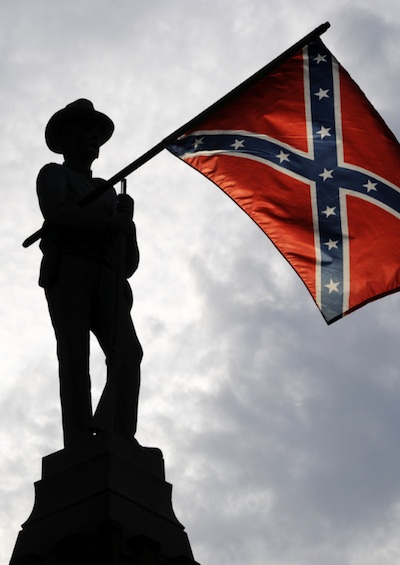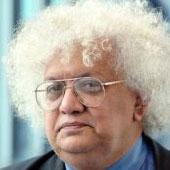The Space Trump Fills in America’s Racial Politics
Trump has hit upon a unique vulnerability in mainstream U.S. politics on race and cannot be dislodged.
August 19, 2017

Donald Trump has now gone beyond the limits that he had reached which were already outrageous enough. By being even-handed between the Extreme Right and their civil society resisters, he has breached all norms.
His attempts to track back were not sincere. His heart is really on the side of the White Nationalists and their even more bizarre partners.
The question is: Why has he done this? Most people think Donald Trump is stupid and/or evil. But that is what his detractors have thought ever since he entered the Presidential race. Despite all the opposition and ridicule, he won.
This allows an alternative interpretation for his behavior – one that some (or many) may find deplorable, but need to reflect on nevertheless.
Whether or not Trump is a very rational, calculating person, he has seen through the agreed stance of the two major parties.
He has found chinks in the armor of the liberal order – a point where neither party will stand officially but enough voters will back him anyway – and wants to exploit (that is, pierce) it.
The right exploit
Like many previous Rightist movements have realized, shock tactics have the value of outraging the majority and exposing vulnerabilities in the cross-party dominant order. These weaknesses can be exploited in their favor.
But the outrage also encourages a far-right movement’s own supporters, who get treated like pariahs, that someone is speaking for them when the major factions refuse to.
The danger with Trump is that people underestimate him as an ideological politician.
Take the present instance, as neo-Confederates mass in the streets to protest the removal of 20th century monuments to their 19th century secessionist heroes.
The American Civil War has elicited a massive literature of interpretations over the last 150 years. The simple liberal formulation would be that Lincoln fought for the abolition of slavery and the North defeated the South and also White nationalism.
The great historical revisions
But think again. When I had just come to the United States as a young 21-year-old in the early 1960s, I recall seeing the front-page of the Book Review section of the Sunday edition of the New York Times. It had the headline Who Won the Civil War?
The review article covered recent books on the Civil War, which were revisionist in their reading of the war. The win-loss outcome of the war itself was not the issue. It was about undermining all the narratives around the causes and aftermath.
The South had its defenders, and revisionist historians – moving beyond even their Lost Cause predecessors – had found chinks in the armor of the mythology around Lincoln himself.
This was 55 years ago. I soon learned that Lincoln avoided bringing in the Slavery issue as long as he could. The war, we were now to believe, was about saving the Union not about emancipating the Slaves.
(Even today, no amount of 1861 documents identifying the Secessionist cause as slavery will convince many Americans otherwise.)
Altered narratives
I also soon found out that politicians speaking from the podium would call it “The War between the States,” not The Civil War.
The heroes of the Civil War apart from Lincoln were increasingly, in the narrative, Southerners. Confederate General Robert E. Lee and his fellow officers, much more than Confederate President Jefferson Davis.
There was better press for Lee – a brutal slaveholder – than for Grant, the exceptional northern commander who eventually defeated Lee.
The histories that I read in the early Sixties were by White historians writing about the War between two sides of the American White family. That is particularly remarkable since, in historical fact, so many poor Southerners had fought for the Union and resisted the Confederacy from within.
Later, after the Civil Rights movement took off, there was some correction back to reality, but by and large the role of Black soldiers was painted as marginal and exotic.
The Civil Rights Movement
The Sixties also saw the first attempt in a hundred years to finish the unresolved problems of the emancipation of slavery and the unfinished post-war Reconstruction that was supposed to implement rights of former slaves.
The struggle to put Black Americans on a footing of equality in terms of their political rights resumed.
It is forgotten now that John Kennedy was a reluctant reformer. His father had friends among the powerful Dixie democrats, such as Senator Strom Thurmond, who had delivered the Southern Democratic votes for his son.
Lyndon Johnson, the accidental President from Texas, fought the hard battle for Civil Rights after Kennedy’s death and delivered.
Even then, only the most surface rights and rollback of statutory apartheid were secured. There has not been another effort to complete that program in the nearly fifty years since Martin Luther King Jr.’s assassination.
Subtler forms of pernicious discrimination, de facto segregation and poor human development outcomes continue for African-Americans.
Back to the future
Mainstream politicians denounced Trump for his endorsement of the White Nationalists after the attack in Charlottesville. Corporate leaders covered themselves by an open declaration of protest against Trump’s endorsement of racism.
They should instead declare what they have done to improve the condition of their Black employees (if they have any!).
All these years, politicians have tolerated the precarious voting rights for Black Americans in many states. The lives of Black men, young and old, remain liable to be ended by the forces of Law and Order. The bulk of Black Americans suffer from serious economic and social deprivation.
Choosing a Black President warmed millions of hearts but did not materially change the Black condition.
Economic stagnation, race relations stagnation
The reason for this non-action was obvious. Popular support for Black Rights was weak in the majority community. The affluent White middle class was relatively accepting at first, when the economy was prospering in the 1960s.
But since the stagflation of the Seventies and the decline in manufacturing jobs and wages, there has been no effort at mobilizing White support for Civil Rights.
As they say in India, “a creamy layer” of Black Americans has benefited, leaving the bulk behind.
Even this small change has roused White envy. No one in the mainstream openly talks about it. In the early Obama years, the Tea Party mobilized this resentment with a more veiled call to “take back our country.”
Now it is simply unmasked in the other emerging groups, who enthusiastically backed Trump on the basis of his decades of racist antagonism.
Neither party will act
The Republican Party does not disavow the support it has gotten from White resentment from 1964 to present. It merely wishes they would keep it implicit, not explicit.
The Democratic Party shies away from a radical commitment to finish what Lyndon Johnson began, even as it costs them elections through racist voter suppression. Their rhetoric is readily anti-racist. It is openly asserted that White Nationalism is unacceptable.
But there is no passion in either party for resuming the struggle for racial equality. The votes of the majority community – Nationalist, garden-variety resentful or neither – are welcome. White Nationalism has never gone away. It just lay low.
The voters will not follow the party
Trump has seen this gap. Even if his open breach of all norms risks splitting the Republican Party, Trump knows that more mainstream Republicans will join him than would now declare openly.
The movement Republicans and conservatives are his for the taking, no matter what party grandees might try to do to stop him.
Even if Trump were to trigger a large walkout by disgusted Republican officeholders and party leaders, he would be the one left with the greater part of the old party. He would not lose even close to half of Republicans in Congress.
Trump can break the cosy Centrist bipartisan compromise because he knows when push comes to shove.
Trump exposed the bipartisan consensus’ weakness in the 2016 Election: No one will fight for Black Americans. Not even the Democratic Party.
Takeaways
The danger with Trump is that people underestimate him as an ideological politician.
Even if both major parties reject Trump’s support for open racists, enough voters will back him up.
If Republican leaders try to leave the party over Trump’s racism, the party and voters will stay with him.
